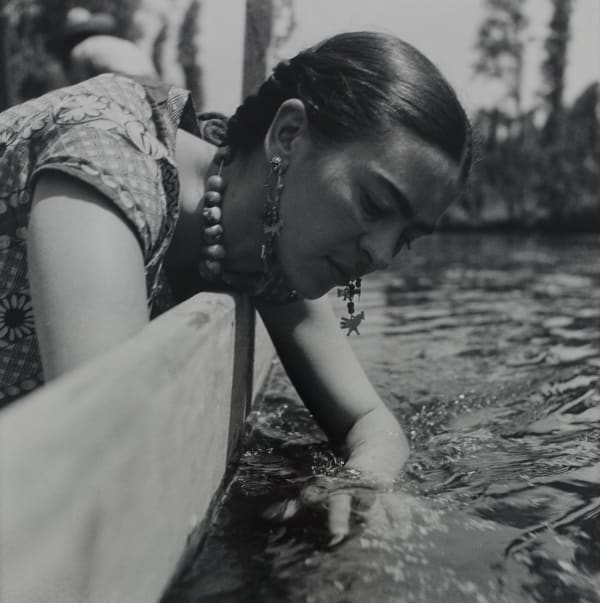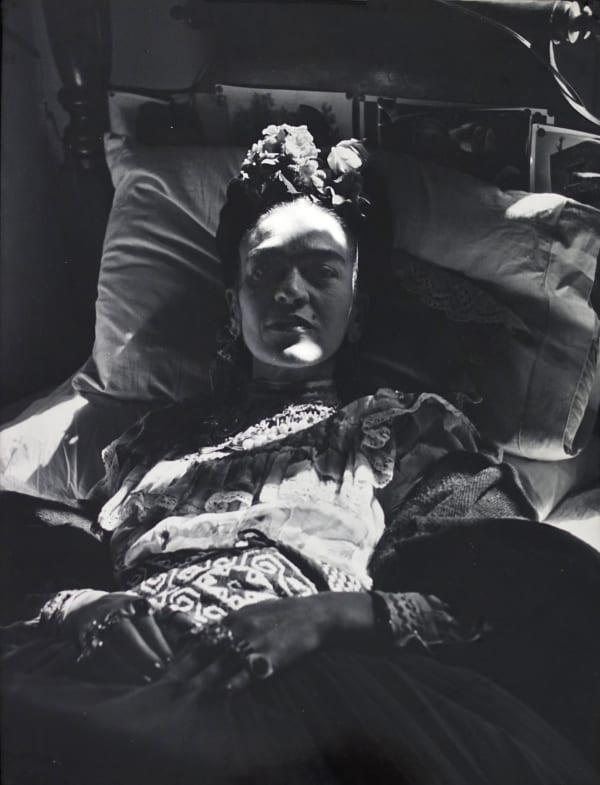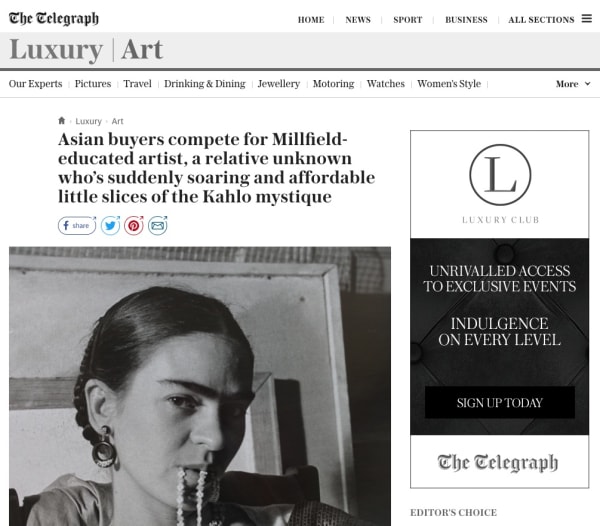FRIDA: A photographic portrait
-
 Ishiuchi Miyako, Frida by Ishiuchi, 2009-12
Ishiuchi Miyako, Frida by Ishiuchi, 2009-12 -

Frida at the river, 1937 © Fritz Henle
-
 The last portrait of Frida Kahlo. Taken just before her death, 1954 © Bernice Kolko
The last portrait of Frida Kahlo. Taken just before her death, 1954 © Bernice Kolko -

Frida at ABC Hospital sketching, 1951 © Juan Guzman
-
 Frida on White Bench, New York, 1939 © Nickolas Muray
Frida on White Bench, New York, 1939 © Nickolas Muray -
 Ishiuchi Miyako, Frida by Ishiuchi#2, 2012/2015
Ishiuchi Miyako, Frida by Ishiuchi#2, 2012/2015 -

Frida by Ishiuchi © Ishiuchi Miyako









